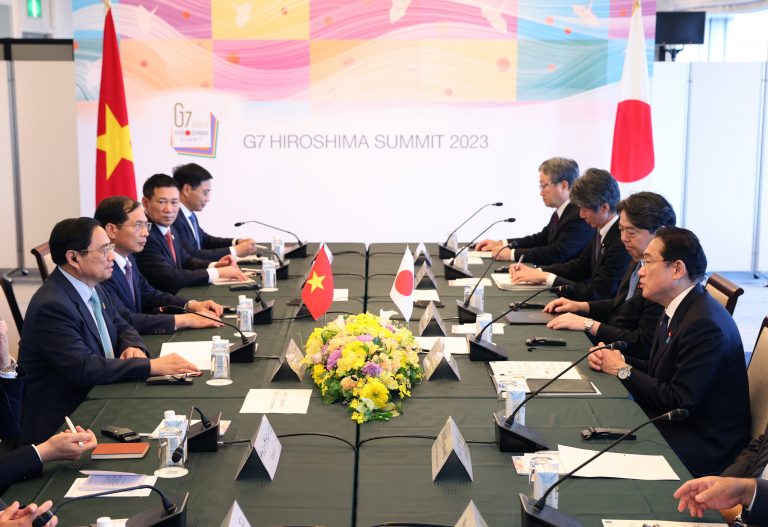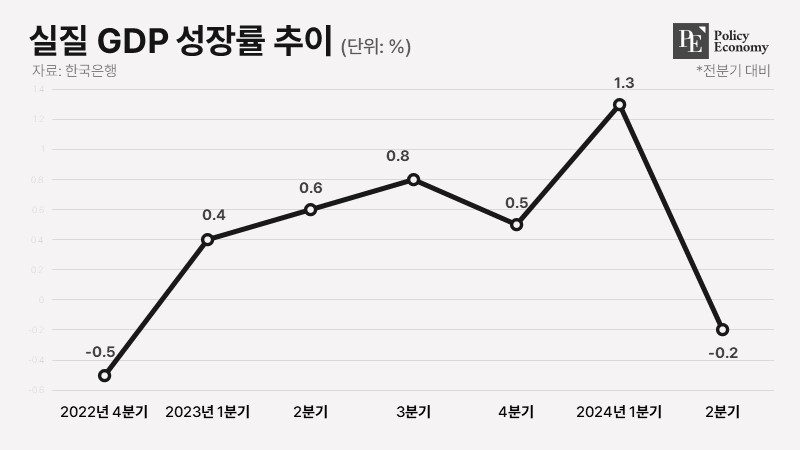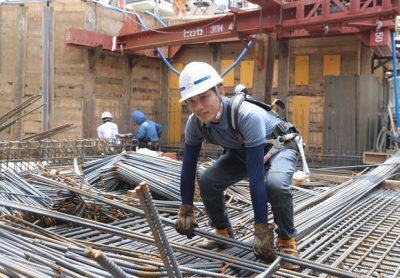아세안, 위기 극복 위해 일본과의 파트너십 활용해야
코로나19 팬데민 이후 아세안 경제 위기 직면 주요세력간 갈등, 아세안의 위협요인으로 작용 일본 활용해 G7 등 주요국과의 협력 강화해야
[동아시아포럼]은 EAST ASIA FORUM에서 전하는 동아시아 정책 동향을 담았습니다. EAST ASIA FORUM은 오스트레일리아 국립대학교(Australia National University) 크로퍼드 공공정책대학(Crawford School of Public Policy) 산하의 공공정책과 관련된 정치, 경제, 비즈니스, 법률, 안보, 국제관계에 대한 연구·분석 플랫폼입니다. 저희 폴리시코리아(The Policy Korea)와 영어 원문 공개 조건으로 콘텐츠 제휴가 진행 중입니다.
코로나19 팬데믹 이후 전 세계적으로 금융시장의 불안이 심화하는 가운데, 특히 아세안(ASEAN) 국가들이 심각한 위기 상황에 직면해 있다. 여기에 주요국 간의 경쟁과 무역 갈등으로 인한 공급망의 분리, 지역 내 열악한 인프라, 기후변화에 따른 비용 상승까지 동남아시아 지역 안팎의 불확실성을 키우면서 어려움을 가중시키고 있다.

아세안 국가, 일본을 가장 신뢰할 수 있는 대국으로 인식
최근 동남아시아 국가 간 갈등이 아세안의 분열과 지역 안보의 약화로 이어지자 국제사회에서는 아세안의 영향력이 약화될 것이란 우려가 나오고 있다. 이런 가운데 전 세계 경제에서 중국의 영향력이 확대되고 이에 대응해 미국이 전략적 긴장 상태를 이어가면서 아세안의 경제에 무시할 수 없는 위협 요인이 되고 있다. 아세안은 이같은 위협 요인을 해소하기 위해 회원국의 자율과 독립성을 강조하면서도 국가 간 연결성과 지역 내 회복력을 강화함으로써 주요국 간의 갈등에 휩쓸리지 않기 위해 노력하고 있다.
이러한 상황에서 일본은 아세안의 중요한 외교적 자산 역할을 하고 있다. 그간 일본은 국제사회에서 아세안의 주권과 자율성을 존중하면서 이들의 이익을 옹호해 왔다. 이에 아세안 국가들도 오랜 기간 일본을 중요한 교류협력국이자 동남아시아 지역의 통합과 경제발전을 지지하는 후원국으로 간주해 왔다. 조사 결과에 따르면 아세안 국가들은 일본에 대해 ‘자국을 존중하는 겸손한 강국’, ‘가장 신뢰할 수 있는 경제대국’으로 인식하고 있는 것으로 나타났다.
한때 일본은 2차 세계대전의 전범국이었지만 현재는 아세안 국가들의 입장을 경청하고 협력과 조화를 추구하는 리더십을 가진 국가로 인정받고 있다. 다만 아세안에 대한 일본의 우호적인 태도와 협력은 상호존중의 원칙과 선의에서 나온 것은 아니다. 일본은 아시아 지역에서 중국을 비롯한 주요국의 영향력이 더 이상 증대되지 않도록 견제하고, 자국의 안보와 경제적 이익을 확대하기 위해 아세안과의 파트너십을 강화하는 것이다.
G7 의장국 일본, 아세안에 대한 주요국의 협력 이끌어내
일본이 이같은 의도를 가졌다 할지라도 G7이나 G20과 같은 글로벌 협의체에서 아세안의 대리인으로서 지역의 우려와 현안을 전하고 이에 대한 주요국의 자원과 협력을 이끌어내는 데 주요한 역할을 한 것은 부인할 수 없는 사실이다. 특히 G7은 기후 이니셔티브, 인프라 개발을 위한 자금 조성 등 글로벌 의제에 대한 논의를 주도하는 포럼으로 G7 의장국인 일본은 아세안 국가들과 G7을 연결하는 데 기여하고 있다.
지난해 11월 인도네시아 발리에서 열린 G20 정상회의에서도 일본은 미국과 함께 인도네시아의 탈석탄 계획에 대한 정의로운 에너지전환파트너십(JETP)을 주도했다. JETP는 선진국이 개발도상국의 에너지 전환을 재정적·기술적으로 지원하기 위해 결성한 네트워크로 해당 협정에는 미국과 일본, 캐나다, 영국, 프랑스, 독일, 이탈리아, 노르웨이, 덴마크 등 총 9개국이 참여했다. 이들은 향후 3~5년간 공공과 민간 부문에서 각 100억 달러씩, 총 200억 달러(약 26조원)를 조달해 인도네시아의 탄소 감축을 위한 기반시설 조성에 투입하기로 했다.
이와 같이 일본은 아세안이 G7으로부터 더 많은 투자를 유치할 수 있도록 지원한다. G7이 새롭게 출범한 글로벌 인프라·투자 파트너십(PGII)도 아세안에게 필요한 자금을 제공할 가능성이 있다. 또한 G7은 세계은행, 아시아개발은행(ADB) 등 국제 금융기관에 대해 상당한 영향력을 행사할 수 있는 만큼 해당 기관으로부터 재개발과 기반시설 조성을 위한 자금을 지원받을 가능성도 크다. 실제로 ADB 설립 당시 가장 많은 자금을 출자한 일본은 현재 SDB의 대주주로 역대 총재가 모두 일본에서 선임되는 등 ADB에 막강한 영향력을 행사하고 있다.
하지만 G7의 투자를 유치하고 협력을 강화하는 것은 아세안에게는 또 다른 불안 요소로 작용한다. G7의 PGII는 중국이 주도하는 일대일로 이니셔티브(BRI)과 경쟁적인 관계에 있어 중국이 아세안에 대한 G7의 개입을 견제할 가능성도 있기 때문이다. 실제 중국과 G7 간의 경쟁 및 갈등으로 인해 이미 기술 분야에서는 인프라와 공급망의 분리가 일어나고 있으며 이는 아세안 중심의 네트워크와 연결성을 약화시키는 요인이 되고 있다. 하지만 이러한 상황에서도 일본과의 파트너십인 유용할 수 있다. 일본이 중국과 G7 간의 긴장을 해소할 수는 없지만 G7과 아세안을 연결해 아세안 국가들의 자율과 독립성, 지역 내 회복력과 국제사회에서의 영향력을 강화할 수 있도록 지원할 수 있기 때문이다.
또한 일본은 국제사회에서 아세안의 입장을 고려하도록 조력할 수도 있다. G7은 국가 간 논의를 확장하기 위해 현안에 따라 주요 협력국들을 참관국으로 초청하는데, 올해 5월 히로시마에서 열린 G7 정상회의에는 인도네시아 조코 위도도(Joko Widodo) 대통령, 베트남의 판 민 찐(Pham Minh Chinh) 총리 등 아세안 지도자들이 참석해 G7 정상과 회담을 가졌다. 이와 같이 일본은 아세안 국가들이 참관국으로 참여시킴으로써 G7 등 주요국의 파트너로서 정기적으로 만남을 가질 수 있도록 지원하고 있다. 이를 통해 아세안 국가들은 국제사회에서의 입지를 강화하는 상징적인 효과가 거둘 수 있을 뿐만 아니라 실질적으로 G7 정상들과 회동할 수 있는 기회도 가지게 됐다.
G20-러시아·중국 간 관계, 일본의 입지와 아세안에 영향
G20은 글로벌 경제 성장, 금융위기와 규제, 코로나19 등 다양한 분야의 이슈를 살펴보고 이에 대한 우선순위를 정해 프레임워크, 가이드라인, 권고사항 등을 공포한다. 현재는 인도네시아만이 아세안을 대표해 G20에 초청되는 방식으로 참여하고 있어 아세안의 관점을 세세히 알리는 데는 제한이 있으나 이 과정에서 일본이 아세안의 핵심과제인 지역 간 연결성, 공급망 안정화, 기후 변화 등에 대해 주요국 간의 대화를 주도하면서 아세안의 주요한 외교적 자산 역할을 톡톡히 하고 있다.
다만 G20 내에서 일본과 아세안 간의 긴밀한 파트너십은 중요한 한계와 위험을 내포하고 있다. 지난해 인도네시아가 G20 정상회의의 개최국으로서 많은 노력을 기울였지만 궁극적으로 일본과 아세안은 주요국 간의 견제와 갈등, 이에 대한 G20의 대응과 합의에 영향을 미칠 만한 힘을 가지고 있지 않기 때문이다. 특히 최근에는 장기화된 미중 갈등과 러시아 참여 여부에 대한 논쟁이 G20 간의 합의를 이끌어내는 데 장애가 됐다. 여기에 더해 러시아-우크라이나 전쟁도 G20 간의 불화와 갈등을 야기하는 또 다른 요인이 되고 있다. 실제로 올해 2월 하야시 요시마사 일본 외무상은 러시아의 G20 참여에 이의를 제기하며 인도에서 열린 G20 외교장관 회의에 불참했다. 하지만 러시아의 우크라이나 공격을 강력히 비판해 온 일본이 향후 G20 활동에 참여하지 않는 일이 잦아질 경우, G20 내에서의 일본의 입지가 약화될 수 밖에 없고 이는 아세안과의 협력 파트너로서의 역할에도 부정적인 영향을 미칠 가능성이 높다.
또한 아세안이 G20과의 협력하기 위해 일본과의 파트너십을 활용하는 것은 중국의 견제를 촉발할 수 있다는 점에서 역풍이 될 수 있다. 실제 그동안 아세안은 일본과 중국의 입장이 확연히 대립하는 경우 중립적인 입장을 취해왔다. 그럼에도 불구하고 아세안은 일본과의 긴밀한 파트너십을 토대로 G7, G20 등 글로벌 협의체에게 지역에 대한 관심을 촉구하고 자국의 입장을 알리는 전략을 포기해서는 안 된다. 일본은 여전히 G20 내에서 아세안의 이니셔티브를 옹호하는 파트너로서 향후 기후 변화, 전염병 대응 등 글로벌 현안에 있어 아세안의 가장 든든한 지원군이 될 수 있기 때문이다. 따라서 아세안 국가들은 주요 세력 간의 갈등을 조장하거나 휩쓸리는 것이 아니라 일본과의 협력관계가 더욱 큰 외교적 가치를 창출할 수 있도록 적절한 대응전략과 기회를 선별하는 안목이 필요할 것으로 보인다.
Japan as a diplomatic asset to ASEAN
ASEAN members are navigating an increasingly challenging regional environment. Headwinds to global trade and finance threaten Southeast Asia’s post-pandemic economic recovery, as do the rising costs of climate change. Waxing great power rivalry is leading to segmented supply chains and infrastructure, hampering intra- and extra-regional trade.

Strains between ASEAN member states sow discord within the association, sapping its clout and potentially undermining regional security. China’s surging influence raises concerns, as do US responses, which increase strategic tension and give short shrift to economics and regional prosperity.
To address these risks, ASEAN members seek to strengthen connectivity and resilience, preserve autonomy and avoid entrapment in a new Cold War. Japan can help by advocating for Southeast Asian interests in global forums.
Southeast Asian governments have long viewed Japan as a key trading partner and sponsor of regional economic development and integration. Japan has also emerged as a major diplomatic partner, advocating for ASEAN centrality and respect for Southeast Asian sovereignty in broader regional forums. Over time, Japan has overcome the legacy of the Second World War, and surveys suggest that it is now the most trusted external power in Southeast Asia. Japan has earned trust in ASEAN capitals by acting as a courteous power — one that listens carefully to regional perspectives, conveys respect and leads quietly in areas of common interest.
Importantly, Japan’s approach to Southeast Asia is not simply a product of benevolence. Japan also needs ASEAN’s diplomatic support to sustain regional initiatives that constrain other major powers — particularly China — and promote Japan’s own security and economic wellbeing. This alignment of interests makes Japan arguably ASEAN’s most reliable major-power partner.
Japan is a crucial asset to ASEAN in global forums such as the G7 and G20, where it can give voice to Southeast Asian concerns and mobilise resources to address regional priorities. It offers ASEAN members a bridge to the G7, where Southeast Asia is otherwise unrepresented. The G7 is a natural group to spearhead funding for climate initiatives, infrastructure and development. As this year’s G7 chair, Japan has had a special opportunity to shape the agenda and address Southeast Asian concerns.
Japan’s ability to lead in concert with Southeast Asian partners was apparent in November 2022 at the G20 summit in Bali, when the Japanese and US governments led donors to forge a Just Energy Transition Partnership with Indonesia. Indonesia is only the second country to enter into such a partnership, which mobilises resources to help coal-reliant states shift to greener forms of energy production. The Japanese and US governments, their G7 partners, the European Union, Norway and Denmark raised an initial US$20 billion from public and private sources to support Indonesia’s carbon reduction plan.
Japan could help ASEAN attract a wider array of G7 investment in Southeast Asia. The G7’s new Partnership for Global Infrastructure and Investment — built partly on Japan’s Partnership for Quality Infrastructure — offers prospects of much-needed financing for Southeast Asia. G7 members have considerable sway in international financial institutions and could catalyse renewed infrastructure investment by the World Bank and Asian Development Bank (ADB). Japan is the obvious leader for such initiatives, in part due to its influence at the ADB, which by tradition has a Japanese president and where Japan and the United States are the largest shareholders.
But G7 investment is not without risks to Southeast Asia. The Partnership for Global Infrastructure and Investment is largely an effort to compete with China’s Belt and Road Initiative (BRI), and China is apt to resist G7 efforts to counterbalance the BRI. Competition and decoupling between China and the G7 could lead to rival infrastructure and supply chains, which is already occurring in the technology sphere.
This could undermine ASEAN efforts at connectivity and network centrality. Japan cannot resolve the tension between China and the G7, but it can advocate within the G7 for a pragmatic approach that focuses on connecting Southeast Asian economies to one another to boost their autonomy, leverage and resilience.
Japan can also help ensure Southeast Asian voices at the table. The G7 has begun including key partners informally to expand the reach of its discussions — Indonesian President Joko Widodo and Vietnamese Prime Minister Pham Minh Chinh were among several leaders to join G7 leaders in Hiroshima in May 2023. Japan could advocate for a scheme in which ASEAN members are regularly represented as informal G7 dialogue partners. The value of their inclusion lies not only in their participation in plenary meetings and the symbolic value of their appearances, but also in the opportunity for bilateral side meetings with G7 leaders.
Japan is also a diplomatic asset to ASEAN within the G20, where ASEAN is regularly invited to participate as a regional organisation but has only one member state (Indonesia) represented. The G20 shapes international action by setting priorities and issuing guidelines, frameworks and recommendations in areas ranging from economic development to financial regulation and pandemic preparedness. Japan can help lead dialogue on issues of prime concern to ASEAN members, such as regional connectivity, supply chain resilience and climate change.
But close collaboration between Japan and ASEAN within the G20 carries important limits and risks. Japan, Indonesia and ASEAN cannot override the great power gridlock that has reduced the G20’s scope for strong collective action. Disputes over Russian participation and competition between Beijing and Washington stymied the G20 in 2022, when Indonesia exhibited legerdemain as host country simply to keep discussions proceeding.
Japan also faces challenges in navigating G20 discord over Ukraine. Japanese Foreign Minister Yoshimasa Hayashi skipped a February 2023 foreign ministers meeting in India to object to Russian participation, sending his deputy instead. If Japan downgrades its G20 participation to protest Russian aggression, it may appear as a less effective partner to ASEAN within that forum.
Most importantly, turning to Japan as a diplomatic partner in the G20 could elicit blowback from Beijing. Where Japanese and Chinese perspectives differ sharply, ASEAN members do not wish to be seen as taking sides. Japan can be most helpful by advocating for ASEAN-branded initiatives within the G20 and pressing for action on global challenges like climate adaptation and pandemic preparedness.
ASEAN members can use their close ties to Japan to achieve greater voice and attention within the G7 and G20. In those and other global forums, Japan can be a key advocate for Southeast Asian connectivity and resilience. But Japan’s diplomatic utility to ASEAN hinges on Tokyo’s discretion and ability to navigate great power rivalry rather than abetting it.
원문의 저자는 미시간 대학교 공공정책대학원(University of Michigan’s Gerald R Ford School of Public Policy) 교수이자 옥스포트 대학 세인트 안토니 컬리지(St Antony’s College, Oxford) 방문교수인 존 D. 시오르시아리(John D Ciorciari)입니다.



























